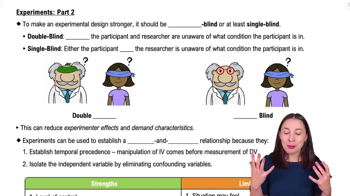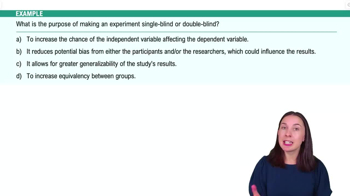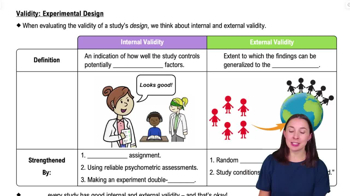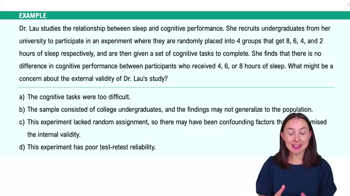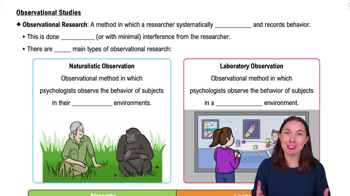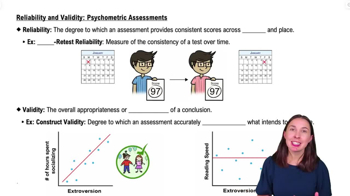Table of contents
- 1. Introduction to Psychology1h 43m
- 2. Psychology Research2h 20m
- 3. Biological Psychology2h 41m
- 4. Sensation and Perception28m
- 5. Consciousness and Sleep32m
- 6. Learning41m
- 7. Memory34m
- 8. Cognition37m
- 9. Emotion and Motivation35m
- 10. Developmental Psychology33m
- 11. Personality48m
- 12. Social Psychology41m
- 13. Stress and Health41m
- 14. Psychological Disorders44m
- 15. Treatment47m
2. Psychology Research
Intro to Research Methods
Struggling with Psychology?
Join thousands of students who trust us to help them ace their exams!Watch the first videoMultiple Choice
One of the major problems associated with personality inventories is that they are
A
dependent on the honesty of the person taking the test.
B
too time-consuming to administer.
C
so long that most people refuse to take them.
D
not standardized, leading to low reliability.
 Verified step by step guidance
Verified step by step guidance1
Understand that personality inventories are tools used to assess individual personality traits and characteristics.
Recognize that one of the major issues with these inventories is their reliance on self-reporting, which means the accuracy of the results depends heavily on the honesty of the respondent.
Consider the potential for social desirability bias, where individuals may answer questions in a manner they believe is more socially acceptable rather than being truthful.
Acknowledge that while some personality inventories can be lengthy, the primary concern is often the validity of the responses due to the self-report nature.
Note that standardized personality inventories are designed to be reliable, but the subjective nature of self-reporting can still impact the consistency of the results.

 1:46m
1:46mWatch next
Master Roadmap of the Lesson with a bite sized video explanation from Hannah Gordils
Start learningRelated Videos
Related Practice











